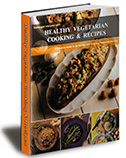All types of food are presently classified as organic or non-organic from fruits and vegetables to bread, meat and dairy products. Although organic bread, for instance, is not within the reach of any consumer, lots of people consider it the only choice to include in their diets. In fact, the emphasis on organic bread gets us closer to a time when bakeries supported the life of communities, long before huge bread manufacturers took over the processes using a new technology like temperature data logger or temperature logger and automatized them. Whole grain bread from crops that have not been treated with any sorts of chemicals make the only ingredients of handmade organic brain.
Other than the organic bread made from normal whole grain flour, there are kinds of organic bread made exclusively from whole grains. Such a bread variety works great for people with intolerance to wheat or other food sensitivities, but generally speaking a consumer will prefer one kind o of product only. Depending on the geographical location, some regions favor organic bread more than others. Fortunately, in many farms worldwide, chemicals are very little used for grain crops, which makes the resulting products a lot better for one’s health.
However, heavily industrialized countries in the West heavily rely on chemicals to increase grain crop productivity and reduce the risk of plant disease. Organic bread will be a privilege in such parts of the world under the circumstances. Consumers can even order organic bread online from family bakeries in their home area. It is normal that the costs of such breads be a bit higher but anyone concerned about health and with a middle class budget will be able to afford it. Organic bread is not a luxury, but it rather represents a return to the traditional, authentic and natural way of eating.
Small family farms are the ones that support organic bread producers. Sometimes combinations of organic and regular grains are possible too. However, one cannot call such breads organic because they are not completely free of chemical residues. Organic bread plays the role of a tradition in many parts of the countryside where the farming activities have preserved some of the specifics of the occupation. Even so, farmers and manufacturers are regularly checked and monitored by the authorities who pass the organic certification.
